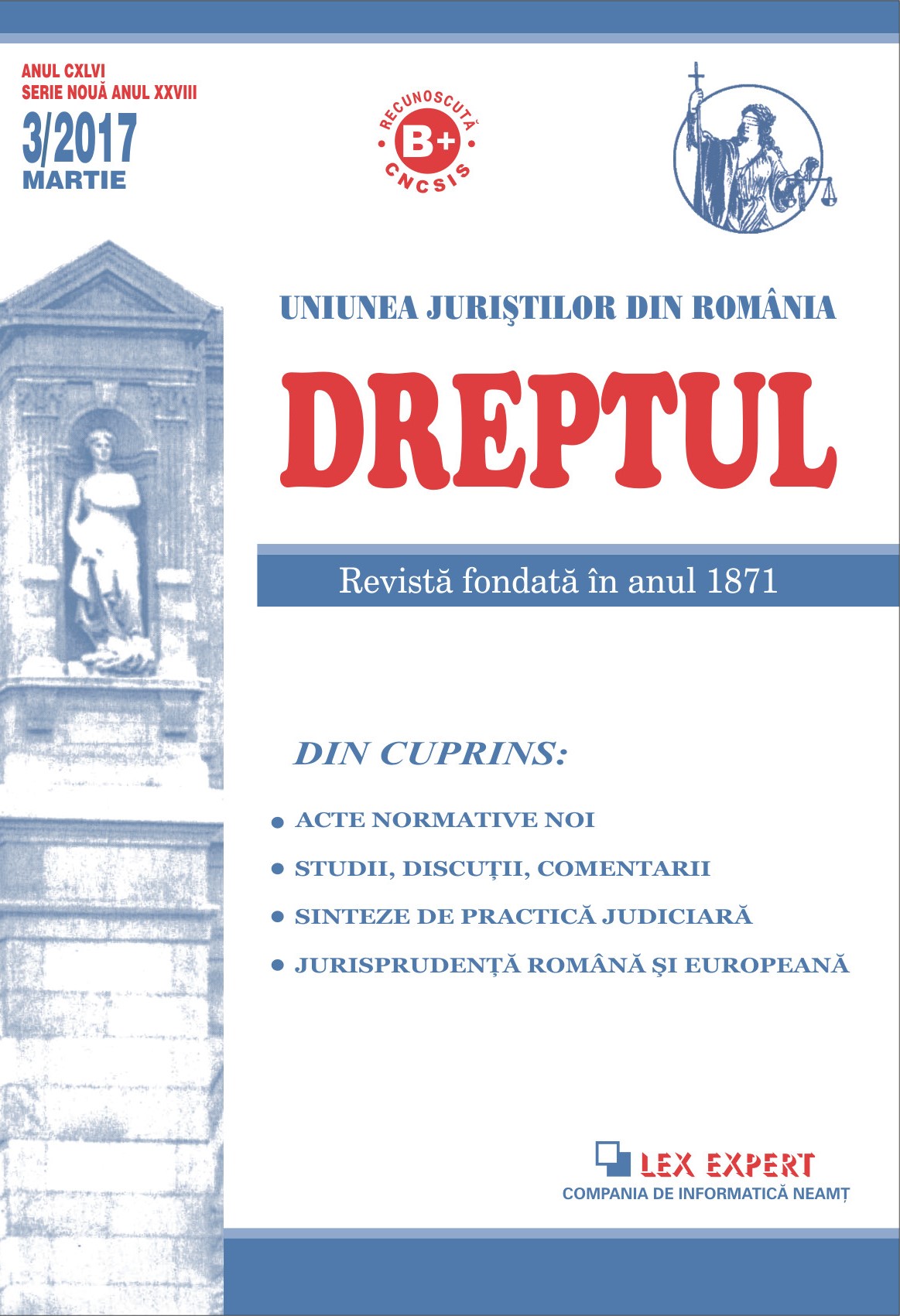Dreptul administrativ, între fragmentare didactică și unitate ideologică
Administrative law, between didactical fragmentation and ideological unity
Author(s): Cristian ClipaSubject(s): Law, Constitution, Jurisprudence
Published by: Uniunea Juriștilor din România
Keywords: administrative law; fragmentation; didactic; unity; identity; ideological; ideological foundation; public administration; public authority; public service; public interest; public power;public institution;
Summary/Abstract: In the last decades, administrative law underwent a phenomenon of didactic fragmentation which nobody can ignore today. Numerous monographies within the doctrine of public law, whose purpose – stated in their own titles – is to treat, from multiple perspectives and in a more or less profound manner, (very) narrow subjects of administrative law, have invaded the book market. It happened not only in Romania, but also in France, a country which reasonably claims to be the homeland of administrative law as a branch of law, and therefore as a teaching subject, in its current European continental approach. This literary explosion went hand in hand with an unprecedented proliferation of master studies specializations offered by higher education institutions, in the area of administrative law and/or public administration. Are these phenomena able to fragment the theoretical discourse of administrative law in such a way that this subject loses its unity and, hence, ideological identity? Most likely not. The model proposed by us – that of the five ideological foundations of administrative law – seems to have the ability to prevent the undesirable result hereabove mentioned. With these five ideological foundations – the public administration, the public authority, the public service, the public interest and the public power – almost all the defining and descriptive equations of the major institutions of administrative law (such as the civil service, the public domain, the public enterprise, the unilateral administrative act, the administrative contract, the administrative litigation and public authorities’ financial liability for damage caused by their illegal acts) are likely to be solved. And if this is possible, then the idea of ideological unity/identity of the administrative law is safeguarded, despite the didactic fragmentation previously envisaged.
Journal: Revista „Dreptul”
- Issue Year: 2017
- Issue No: 03
- Page Range: 32-54
- Page Count: 23
- Language: Romanian
- Content File-PDF

